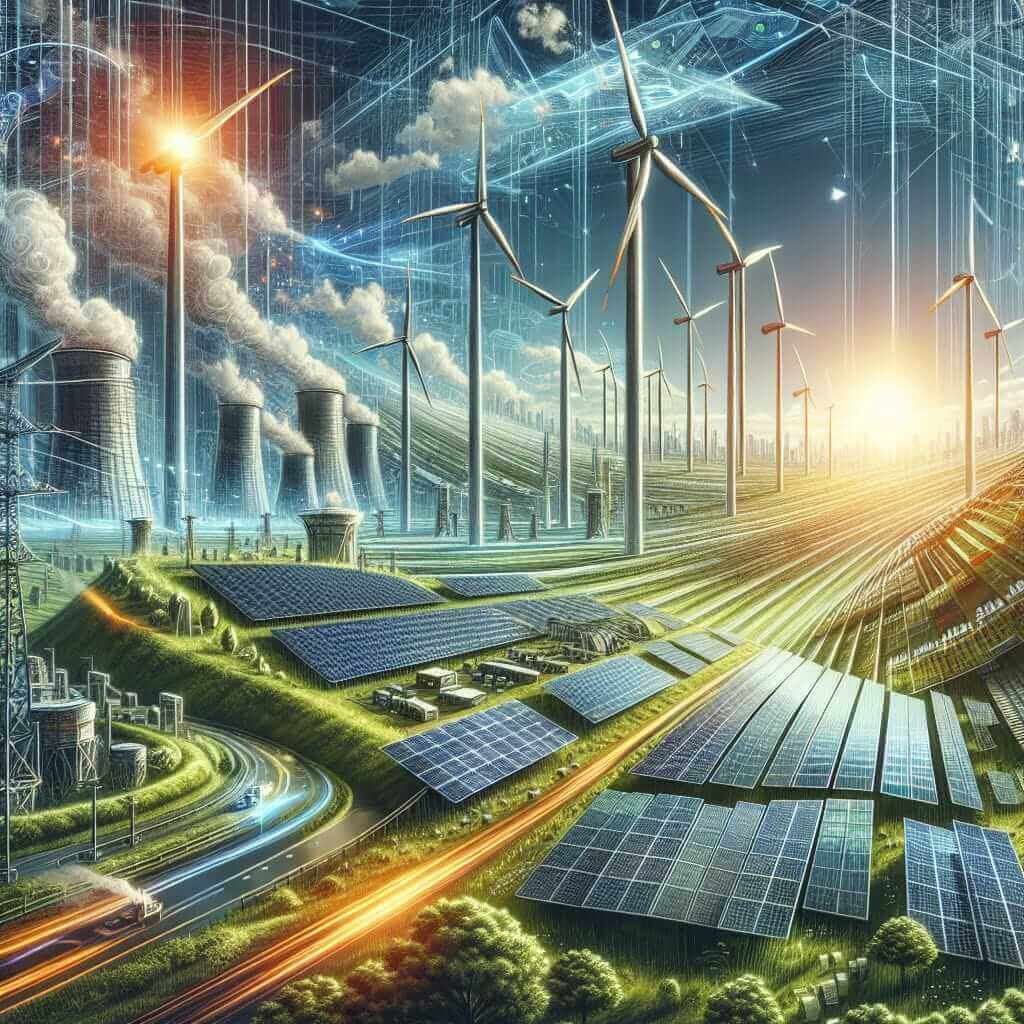The IELTS Reading test evaluates candidates’ skills in understanding and interpreting written English. Historically, topics related to global infrastructure and renewable energy have frequently appeared, making it crucial for test-takers to familiarize themselves with current trends and their impacts. This article will delve into “What are the effects of renewable energy on global infrastructure development?” and present a practice IELTS Reading test to aid your preparation.
Practice Reading Passage: The Effects of Renewable Energy on Global Infrastructure Development
Renewable Energy and Infrastructure
The global shift towards renewable energy has significant implications for infrastructure development. Renewable energy sources such as solar, wind, and hydroelectric power are reshaping the way infrastructure is planned, constructed, and maintained worldwide.
Environmental and Economic Benefits
Renewable energy projects contribute to reducing carbon footprints and improving air quality. They create jobs and stimulate economic growth, especially in regions previously reliant on fossil fuels. These projects also foster technological innovation, providing new opportunities for sustainable development.
Challenges and Considerations
Despite the benefits, integrating renewable energy into existing infrastructure comes with challenges. The intermittent nature of sources like wind and solar power requires advancements in energy storage and grid management. Additionally, retrofitting older infrastructure to accommodate new technologies can be costly and complex.
Case Studies: Global Perspectives
Countries like Germany and China are at the forefront of renewable energy adoption. Germany’s Energiewende initiative aims to transition to a low-carbon, nuclear-free economy, significantly altering its infrastructure landscape. China is heavily investing in renewable energy, constructing large-scale solar and wind farms while modernizing its grid systems.
Future Outlook
The future of global infrastructure is intricately tied to renewable energy. Expanding the use of renewable resources will necessitate international collaboration, policy reforms, and increased investment in innovative technologies. As countries continue to embrace renewable energy, the resulting shifts in infrastructure will play a pivotal role in achieving sustainable development goals.
Practice Questions
True/False/Not Given
- Renewable energy projects have a negligible impact on job creation.
- Integrating renewable energy sources like wind and solar can be challenging due to their intermittent nature.
- Germany’s Energiewende initiative includes plans to maintain its current nuclear power capacity.
Multiple Choice
- Which of the following is NOT mentioned as a benefit of renewable energy projects?
a) Reducing carbon footprints
b) Creating jobs
c) Eliminating the need for economic investment in developing regions
d) Stimulating technological innovation
Short-answer Questions
- Name two countries leading the adoption of renewable energy.
- What initiative in Germany aims to transition the economy to low-carbon energy?
Matching Information
- Match the statements (A-E) with the paragraphs (1-5).
- A. Challenges of integrating renewable energy
- B. Benefits for the environment
- C. Future prospects
- D. Case studies from specific countries
- E. General impact on infrastructure development
Answer Key and Explanations
- False – The passage states renewable energy projects create jobs and stimulate economic growth.
- True – The text mentions the intermittent nature of wind and solar power requiring advancements in energy storage.
- Not Given – The passage does not specify about maintaining or reducing nuclear power capacity in Germany’s Energiewende initiative.
- c) Eliminating the need for economic investment in developing regions – This option is not mentioned in the passage.
- Germany and China – As stated in the ‘Case Studies’ section.
- Energiewende – Mentioned under Germany’s initiative in the passage.
-
- A. Paragraph 3
- B. Paragraph 2
- C. Paragraph 5
- D. Paragraph 4
- E. Paragraph 1
Common Mistakes
- Misinterpreting Information: Always refer back to the text to confirm the details rather than relying on memory.
- Answering Without Reading Fully: Skim the questions first then read the passage carefully to avoid missing important information.
Vocabulary
- Carbon footprints (noun): /ˈkɑː.bən ˈfʊt.prɪnts/ – the amount of carbon dioxide emissions for which an individual or organization is responsible.
- Intermittent (adj.): /ˌɪn.təˈmɪt.ənt/ – occurring at irregular intervals; not continuous or steady.
- Energiewende (noun): /ˌen.əˈgīwɛndə/ – a German term for the transition by Germany to a low carbon, environmentally sound, reliable, and affordable energy supply.
Grammar
Complex Sentences
Definition: A sentence that contains an independent clause and at least one dependent clause.
- Example from the text: “Despite the benefits, integrating renewable energy into existing infrastructure comes with challenges.”
Conditional Sentences
Type 1 (Real possibility): If + present simple, will + base verb.
- Example from the text: “If renewable energy use expands, it will necessitate international collaboration.”
Tips for Achieving a High Reading Score
- Practice Skimming and Scanning: Focus on quickly locating key information.
- Enhance Vocabulary: Regularly learning new words will help understand complex texts.
- Time Management: Allocate time for each section and avoid spending too long on any question.
For more insights on renewable energy topics, consider reading The Importance of Renewable Energy Incentives and What are the Challenges of Achieving Sustainable Economic Development?.

By integrating these strategies into your preparation, you’ll be better equipped to excel in the IELTS Reading test. Good luck!